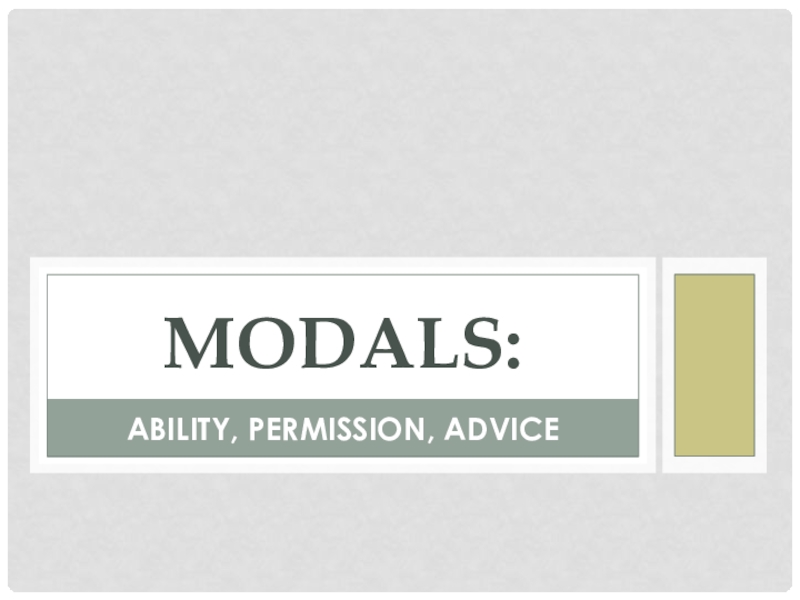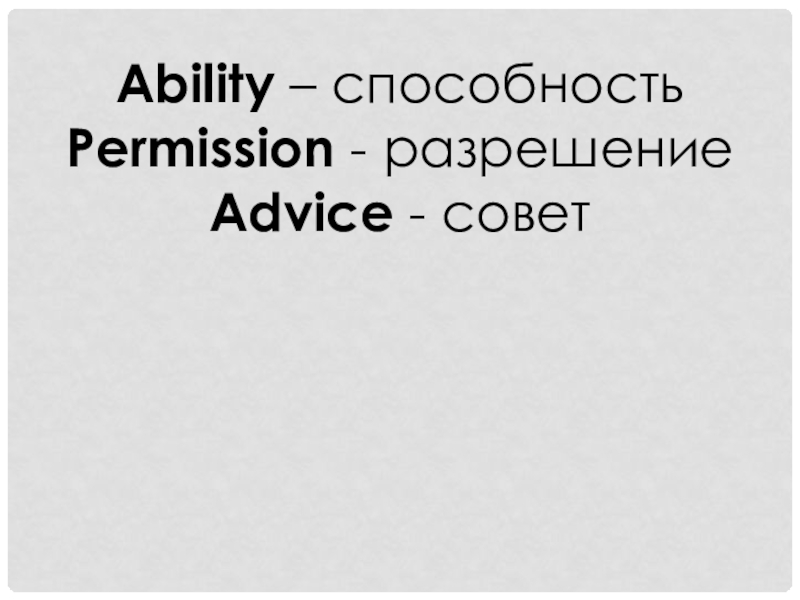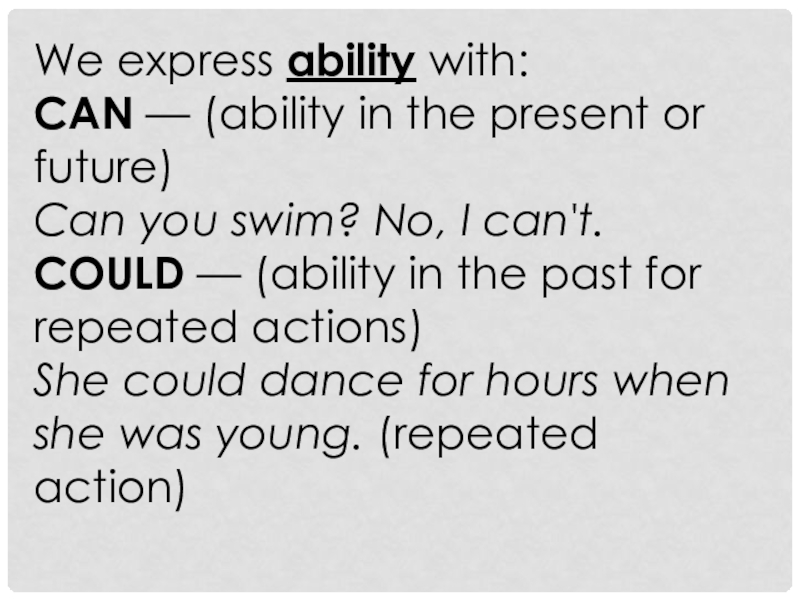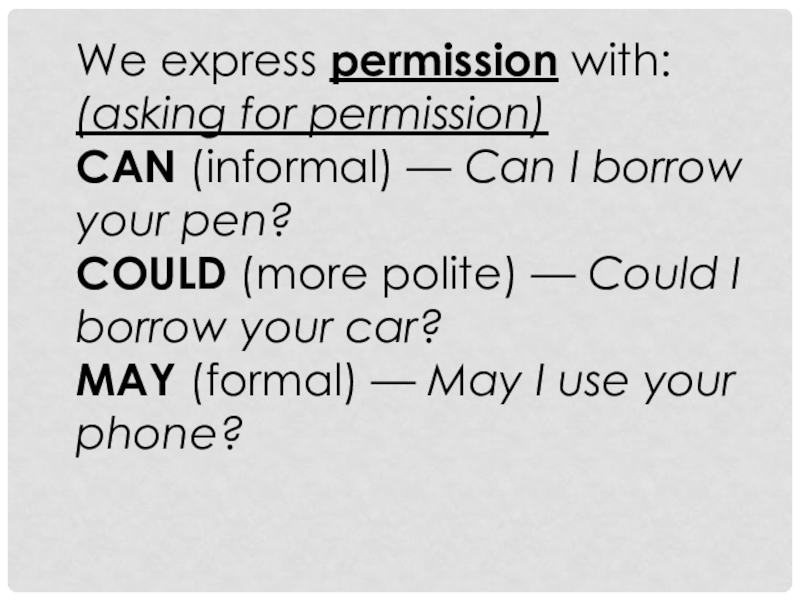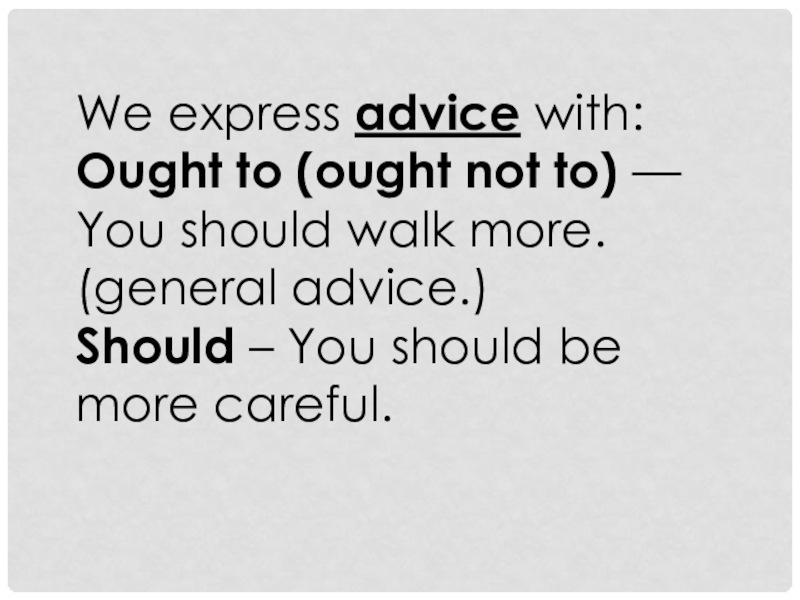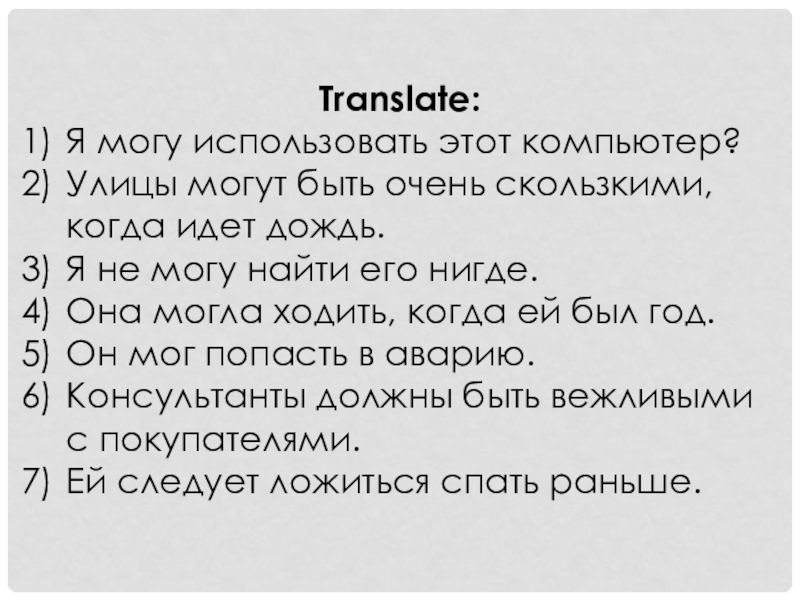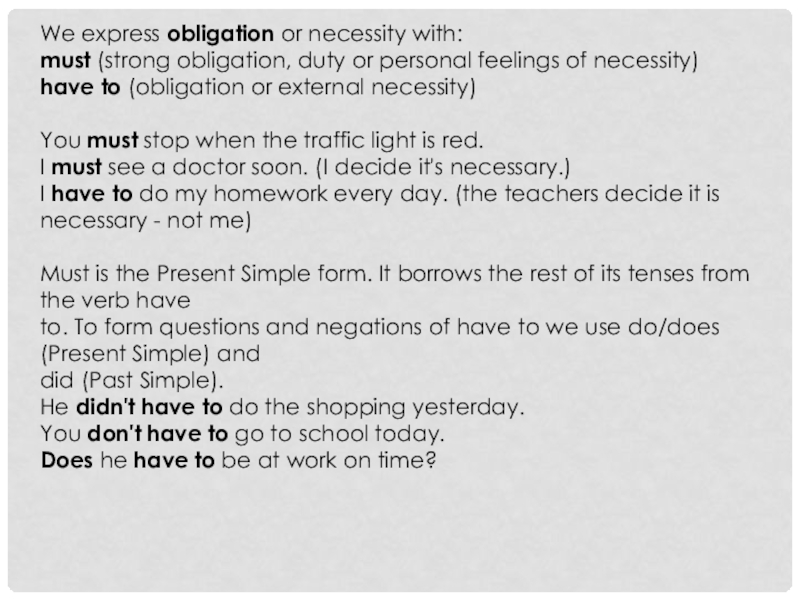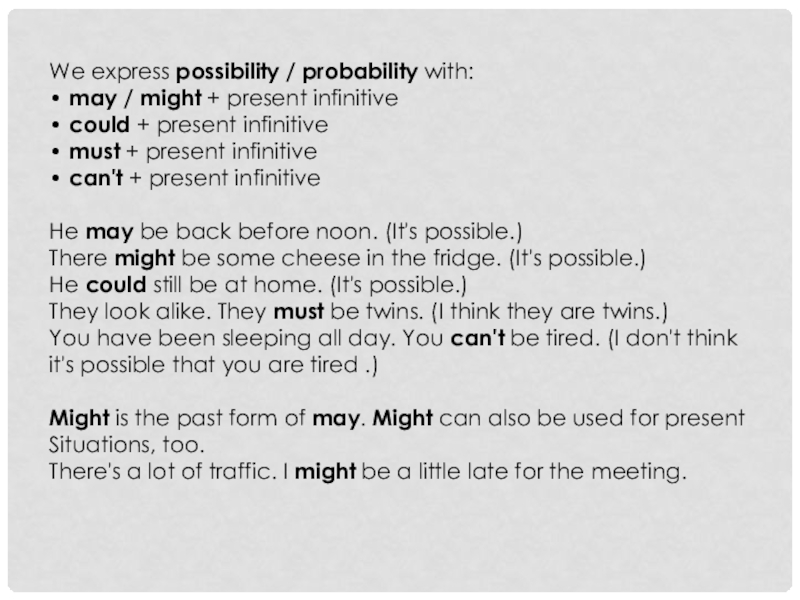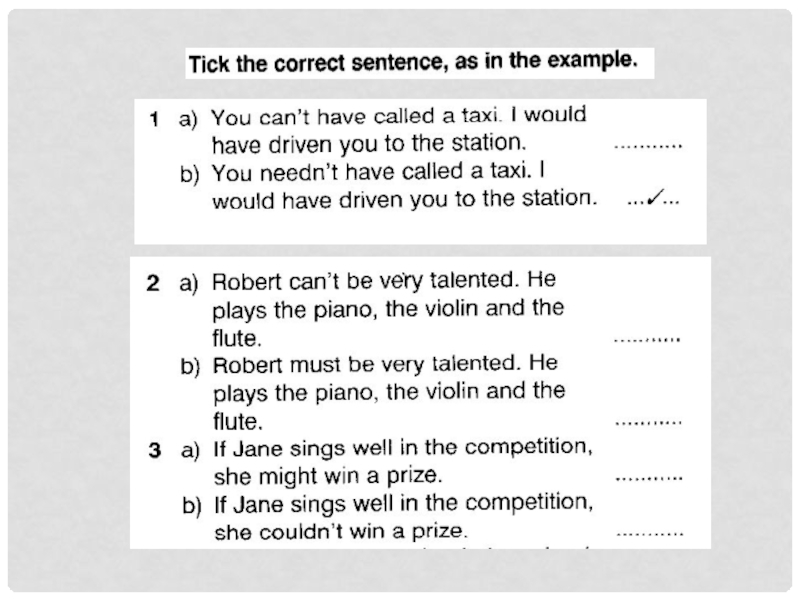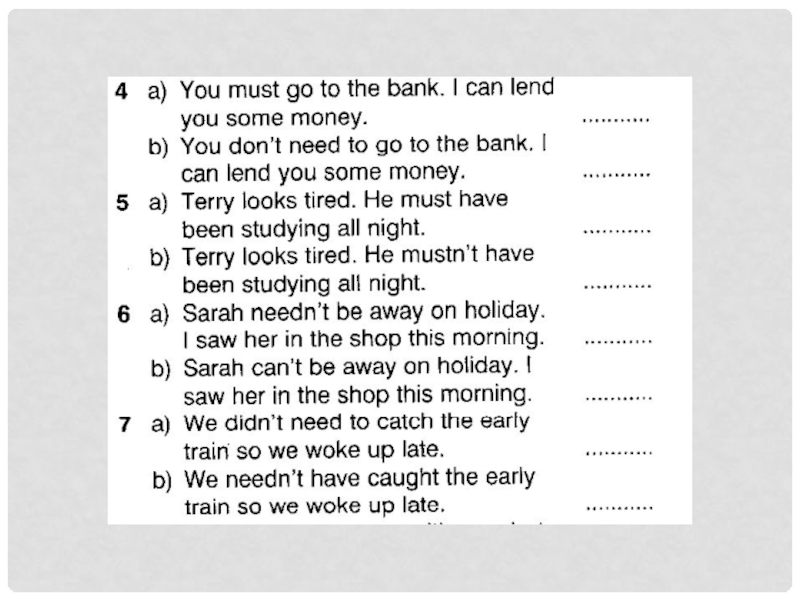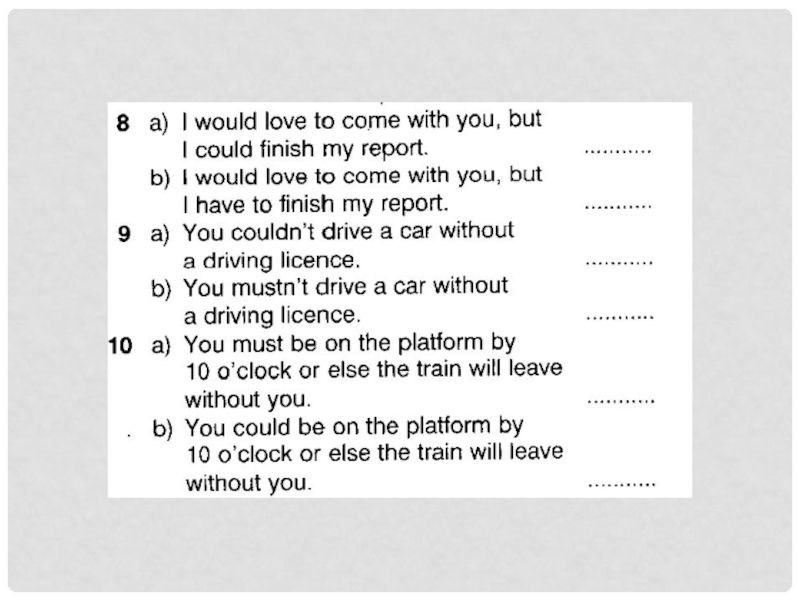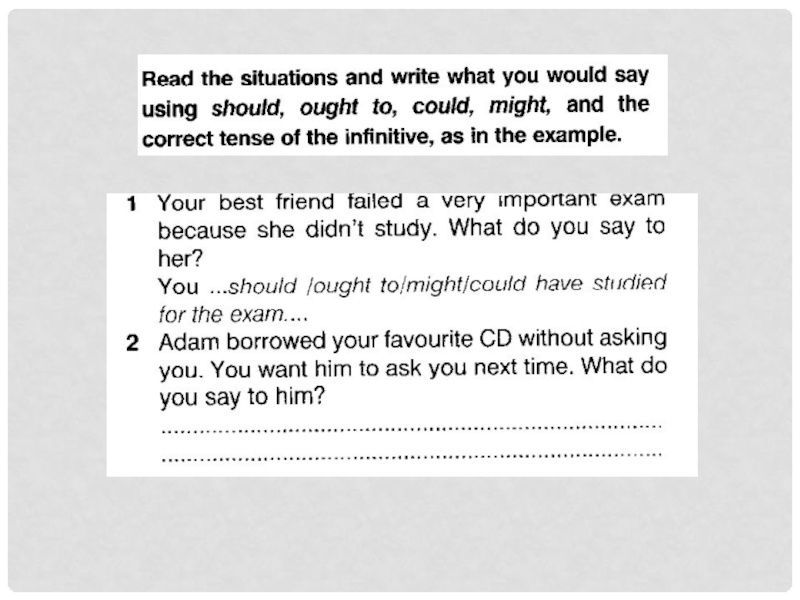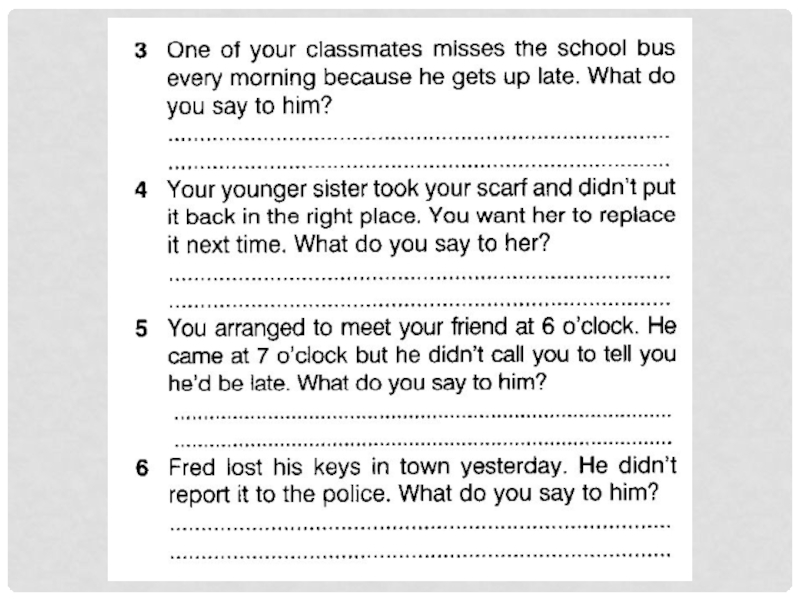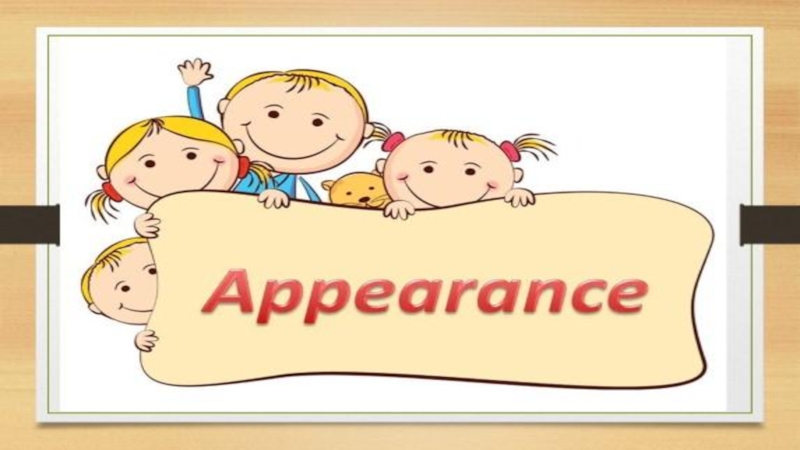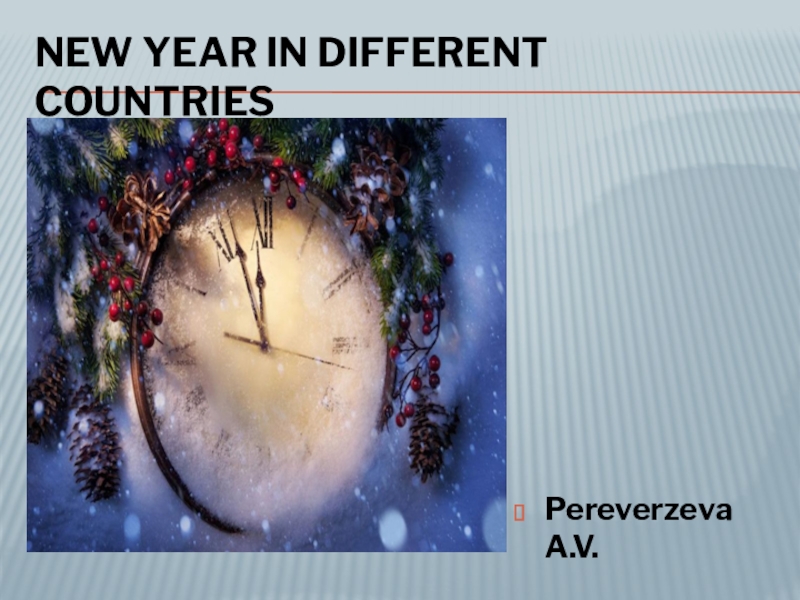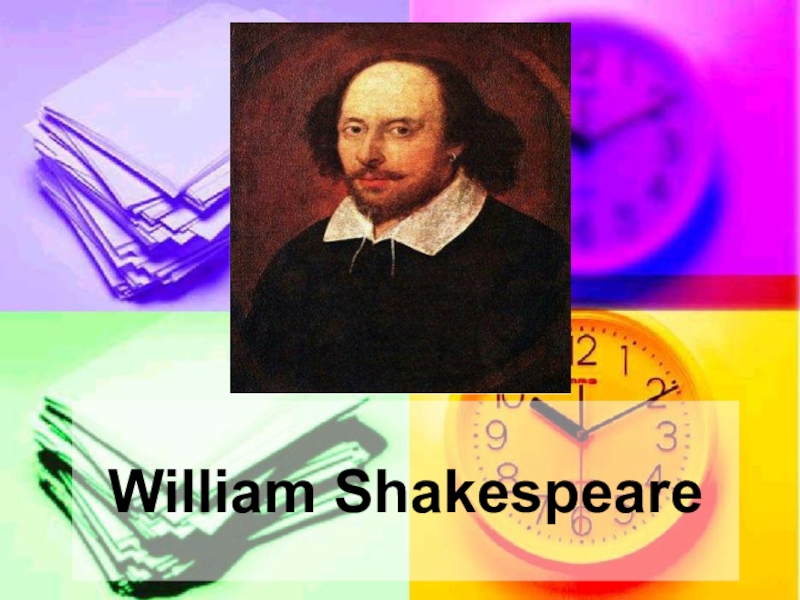- Главная
- Разное
- Образование
- Спорт
- Естествознание
- Природоведение
- Религиоведение
- Французский язык
- Черчение
- Английский язык
- Астрономия
- Алгебра
- Биология
- География
- Геометрия
- Детские презентации
- Информатика
- История
- Литература
- Математика
- Музыка
- МХК
- Немецкий язык
- ОБЖ
- Обществознание
- Окружающий мир
- Педагогика
- Русский язык
- Технология
- Физика
- Философия
- Химия
- Шаблоны, фоны, картинки для презентаций
- Экология
- Экономика
Презентация, доклад по английскому языку на тему Модальные глаголы
Содержание
- 1. Презентация по английскому языку на тему Модальные глаголы
- 2. Ability – способностьPermission - разрешениеAdvice - совет
- 3. We express ability with:CAN — (ability in
- 4. We express permission with:(asking for permission)CAN (informal)
- 5. We express advice with:Ought to (ought not
- 6. Translate:Я могу использовать этот компьютер?Улицы могут быть
- 7. We express obligation or necessity with:must (strong
- 8. We express possibility / probability with:• may
- 9. Слайд 9
- 10. Слайд 10
- 11. Слайд 11
- 12. Слайд 12
- 13. Слайд 13
Ability – способностьPermission - разрешениеAdvice - совет
Слайд 3We express ability with:
CAN — (ability in the present or future)
Can
you swim? No, I can't.
COULD — (ability in the past for repeated actions)
She could dance for hours when she was young. (repeated action)
COULD — (ability in the past for repeated actions)
She could dance for hours when she was young. (repeated action)
Слайд 4We express permission with:
(asking for permission)
CAN (informal) — Can I borrow
your pen?
COULD (more polite) — Could I borrow your car?
MAY (formal) — May I use your phone?
COULD (more polite) — Could I borrow your car?
MAY (formal) — May I use your phone?
Слайд 5We express advice with:
Ought to (ought not to) — You should
walk more. (general advice.)
Should – You should be more careful.
Should – You should be more careful.
Слайд 6Translate:
Я могу использовать этот компьютер?
Улицы могут быть очень скользкими, когда идет
дождь.
Я не могу найти его нигде.
Она могла ходить, когда ей был год.
Он мог попасть в аварию.
Консультанты должны быть вежливыми с покупателями.
Ей следует ложиться спать раньше.
Я не могу найти его нигде.
Она могла ходить, когда ей был год.
Он мог попасть в аварию.
Консультанты должны быть вежливыми с покупателями.
Ей следует ложиться спать раньше.
Слайд 7We express obligation or necessity with:
must (strong obligation, duty or personal
feelings of necessity)
have to (obligation or external necessity)
You must stop when the traffic light is red.
I must see a doctor soon. (I decide it's necessary.)
I have to do my homework every day. (the teachers decide it is necessary - not me)
Must is the Present Simple form. It borrows the rest of its tenses from the verb have
to. To form questions and negations of have to we use do/does (Present Simple) and
did (Past Simple).
He didn't have to do the shopping yesterday.
You don't have to go to school today.
Does he have to be at work on time?
have to (obligation or external necessity)
You must stop when the traffic light is red.
I must see a doctor soon. (I decide it's necessary.)
I have to do my homework every day. (the teachers decide it is necessary - not me)
Must is the Present Simple form. It borrows the rest of its tenses from the verb have
to. To form questions and negations of have to we use do/does (Present Simple) and
did (Past Simple).
He didn't have to do the shopping yesterday.
You don't have to go to school today.
Does he have to be at work on time?
Слайд 8We express possibility / probability with:
• may / might + present
infinitive
• could + present infinitive
• must + present infinitive
• can't + present infinitive
He may be back before noon. (It's possible.)
There might be some cheese in the fridge. (It's possible.)
He could still be at home. (It's possible.)
They look alike. They must be twins. (I think they are twins.)
You have been sleeping all day. You can't be tired. (I don't think it's possible that you are tired .)
Might is the past form of may. Might can also be used for present Situations, too.
There's a lot of traffic. I might be a little late for the meeting.
• could + present infinitive
• must + present infinitive
• can't + present infinitive
He may be back before noon. (It's possible.)
There might be some cheese in the fridge. (It's possible.)
He could still be at home. (It's possible.)
They look alike. They must be twins. (I think they are twins.)
You have been sleeping all day. You can't be tired. (I don't think it's possible that you are tired .)
Might is the past form of may. Might can also be used for present Situations, too.
There's a lot of traffic. I might be a little late for the meeting.
